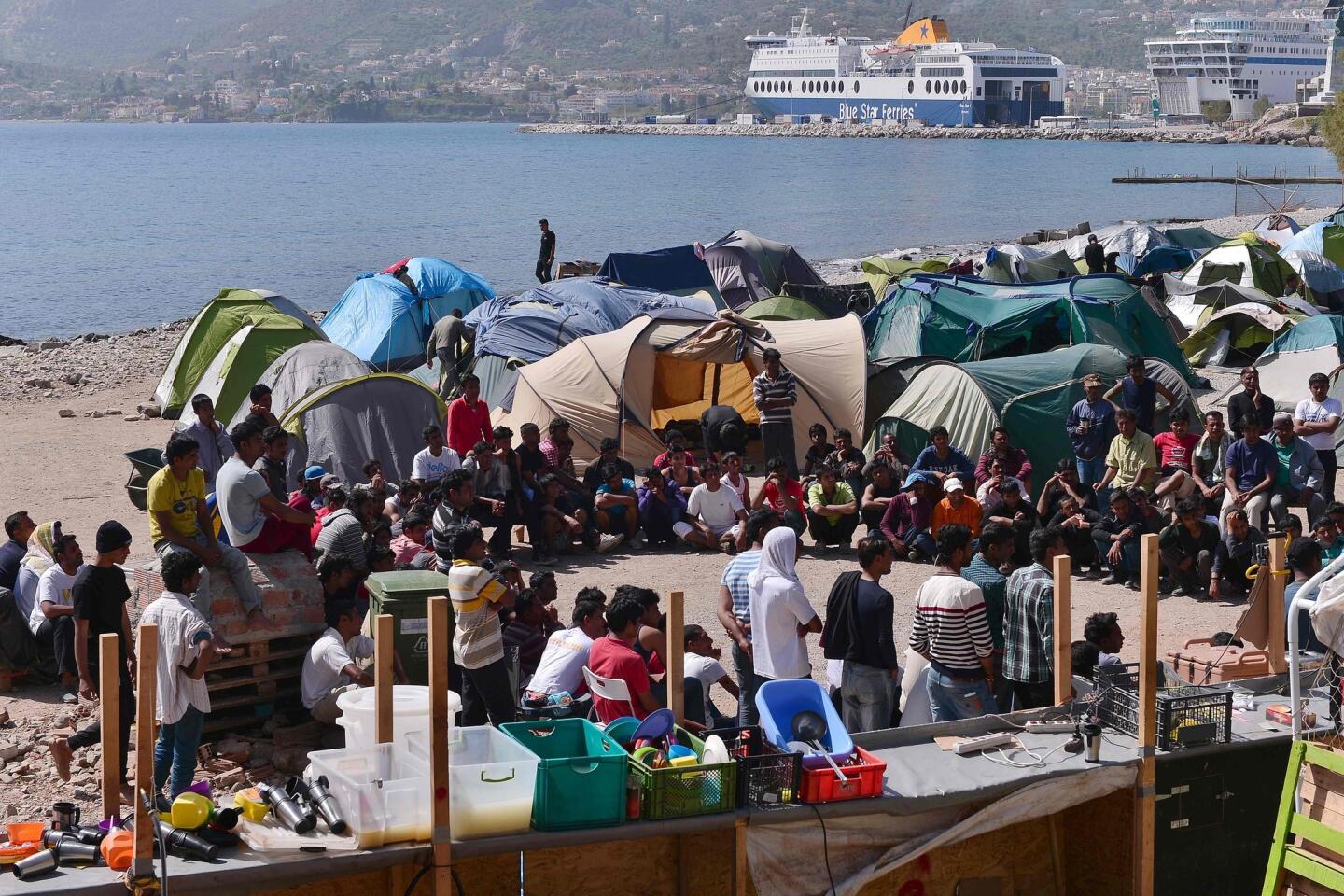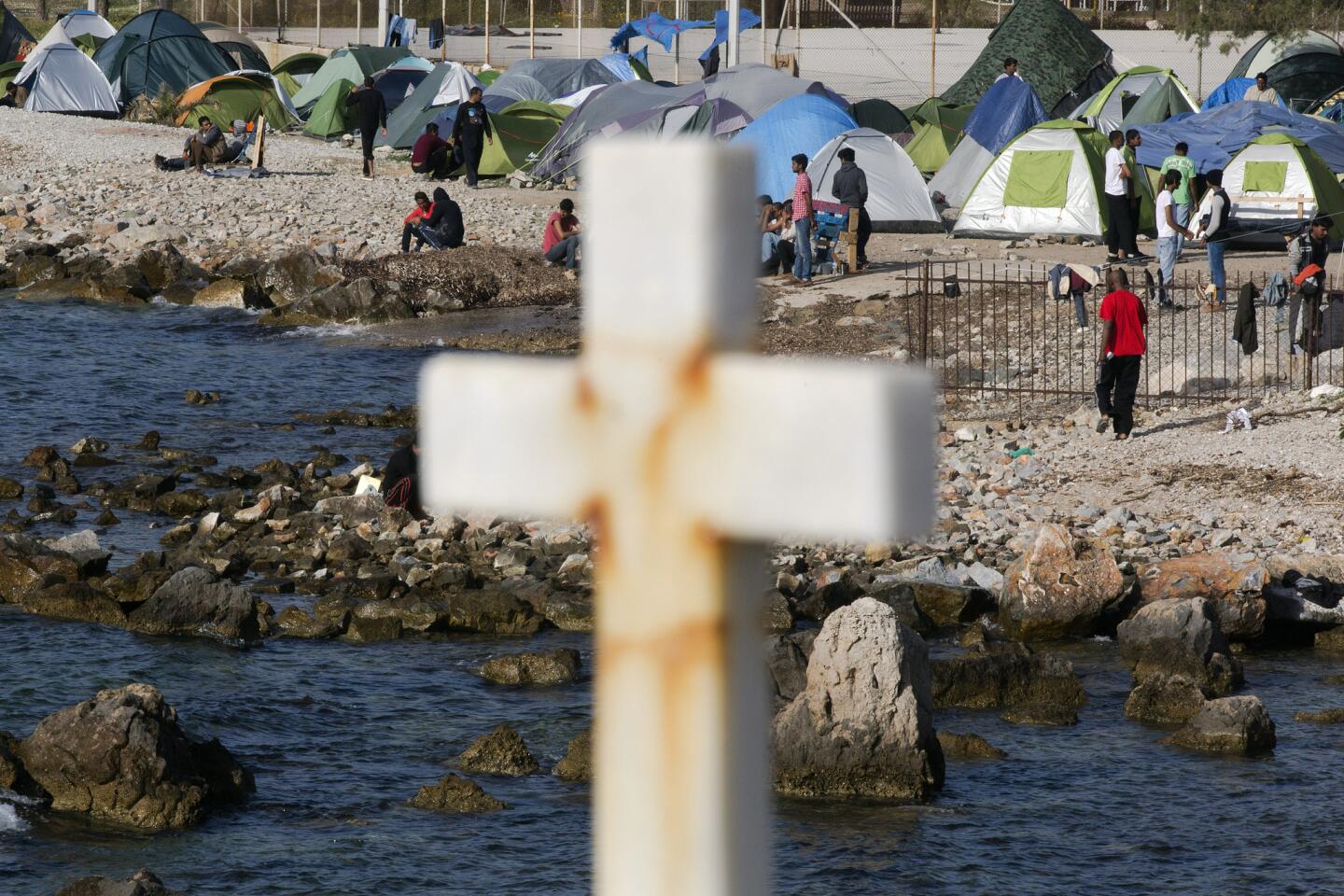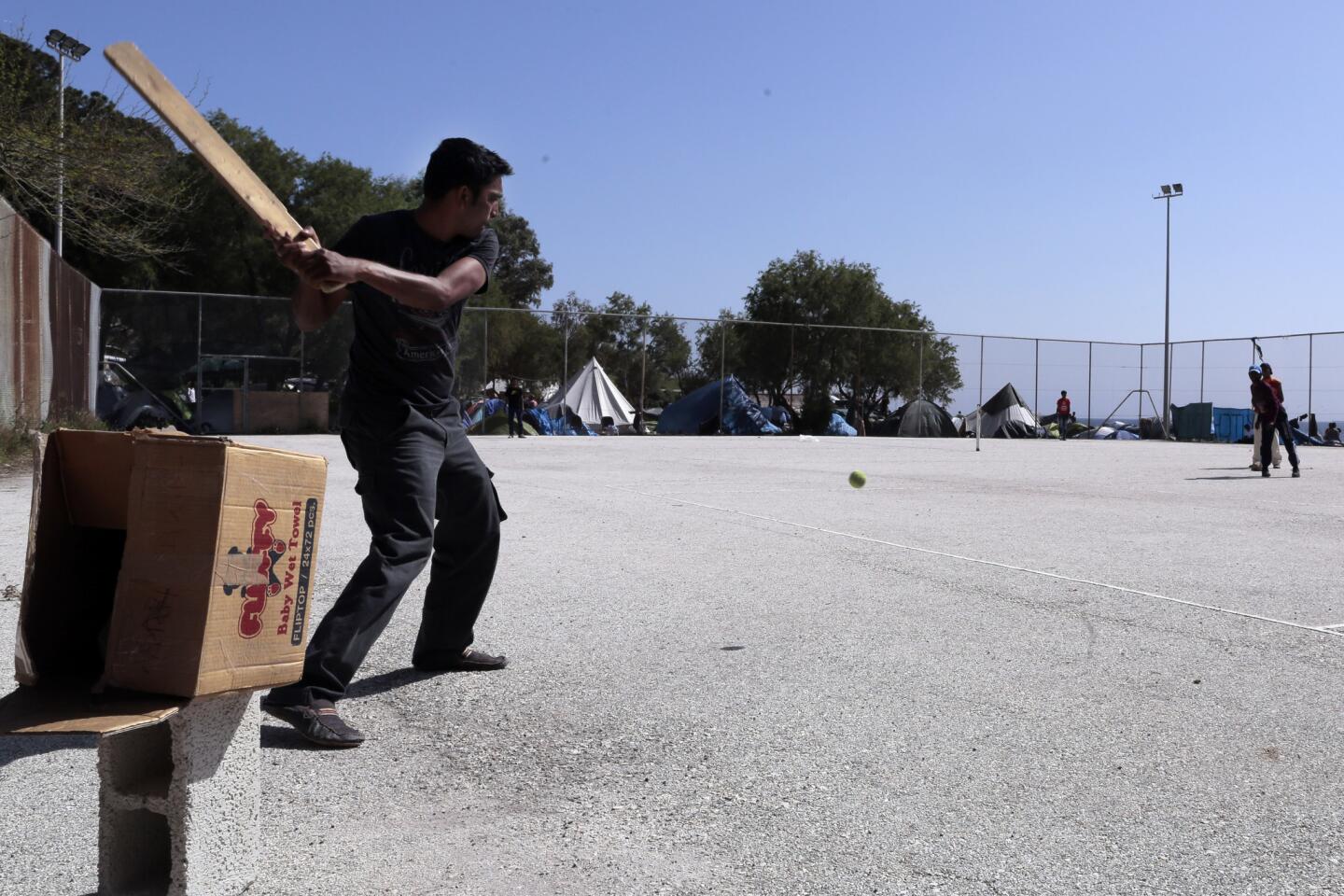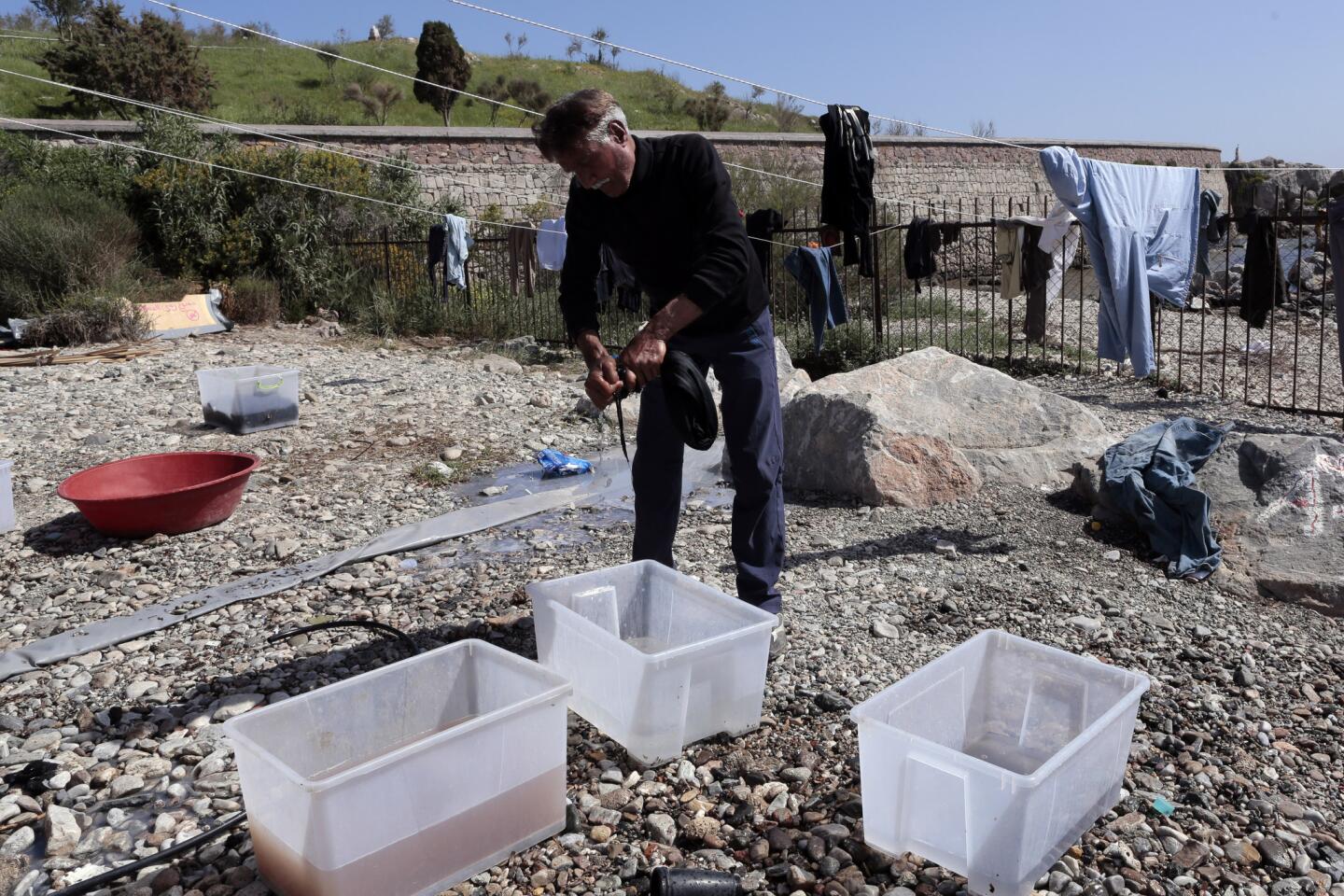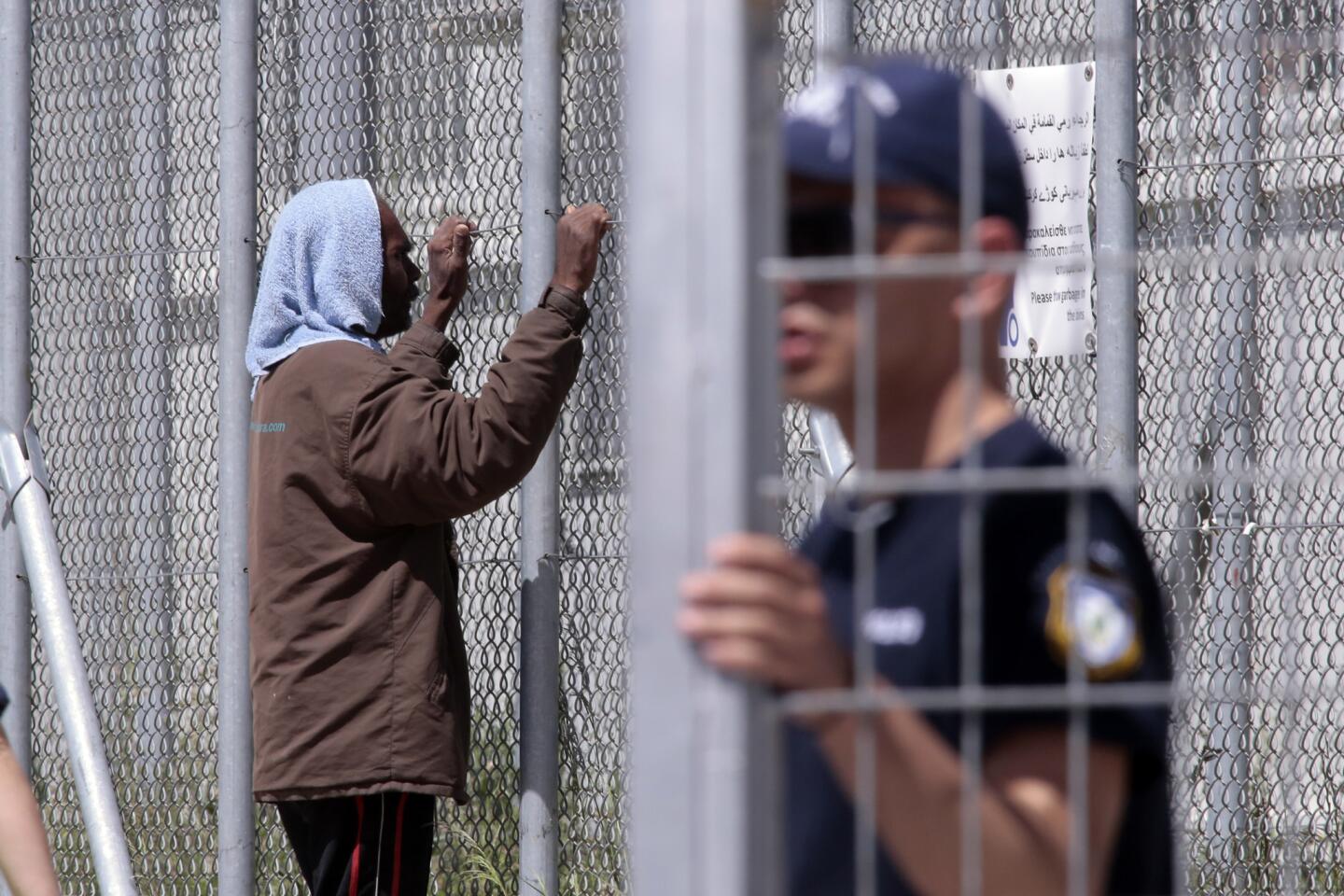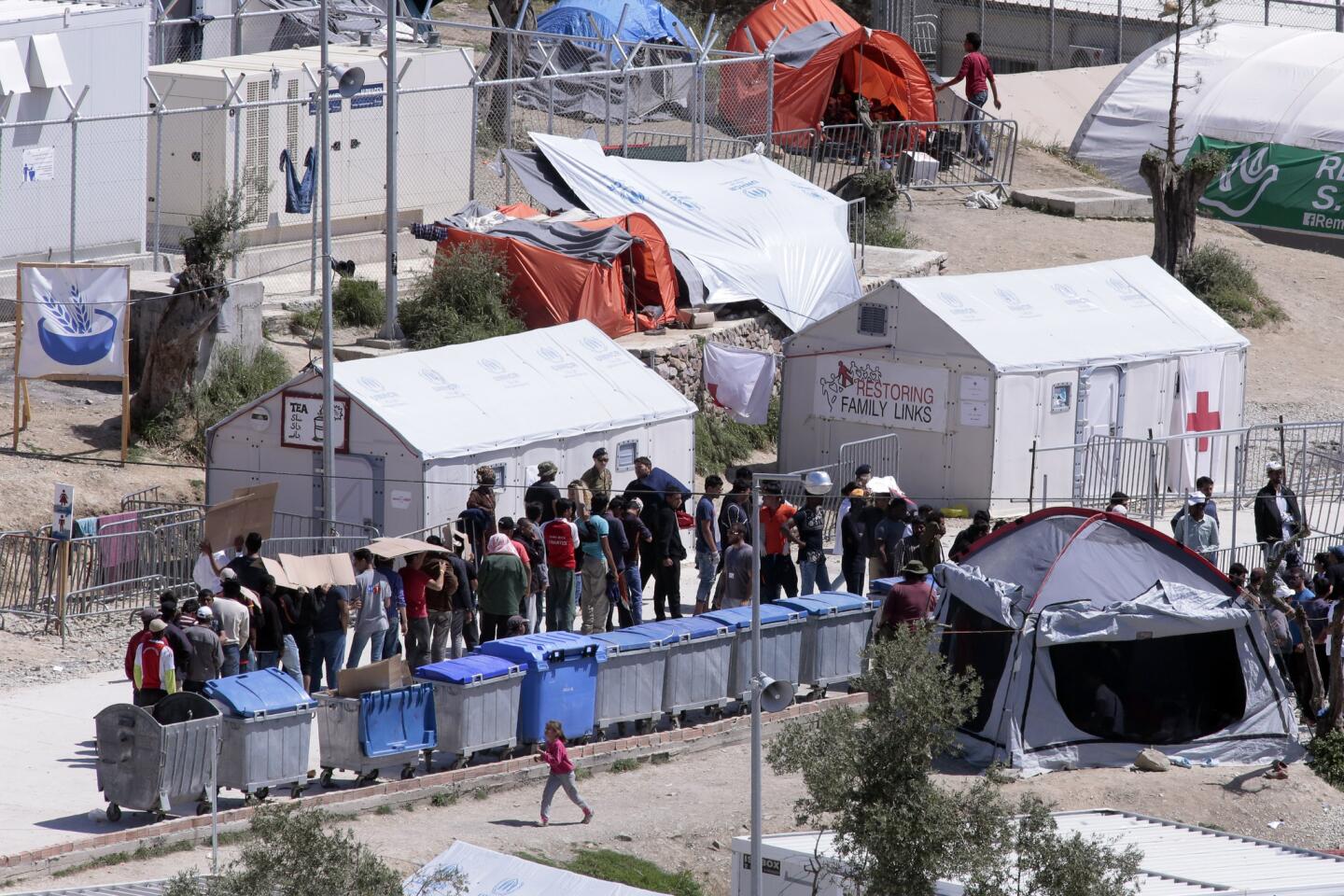Pope’s visit to Greek island of refugees will be rich on symbolism as churches show unity
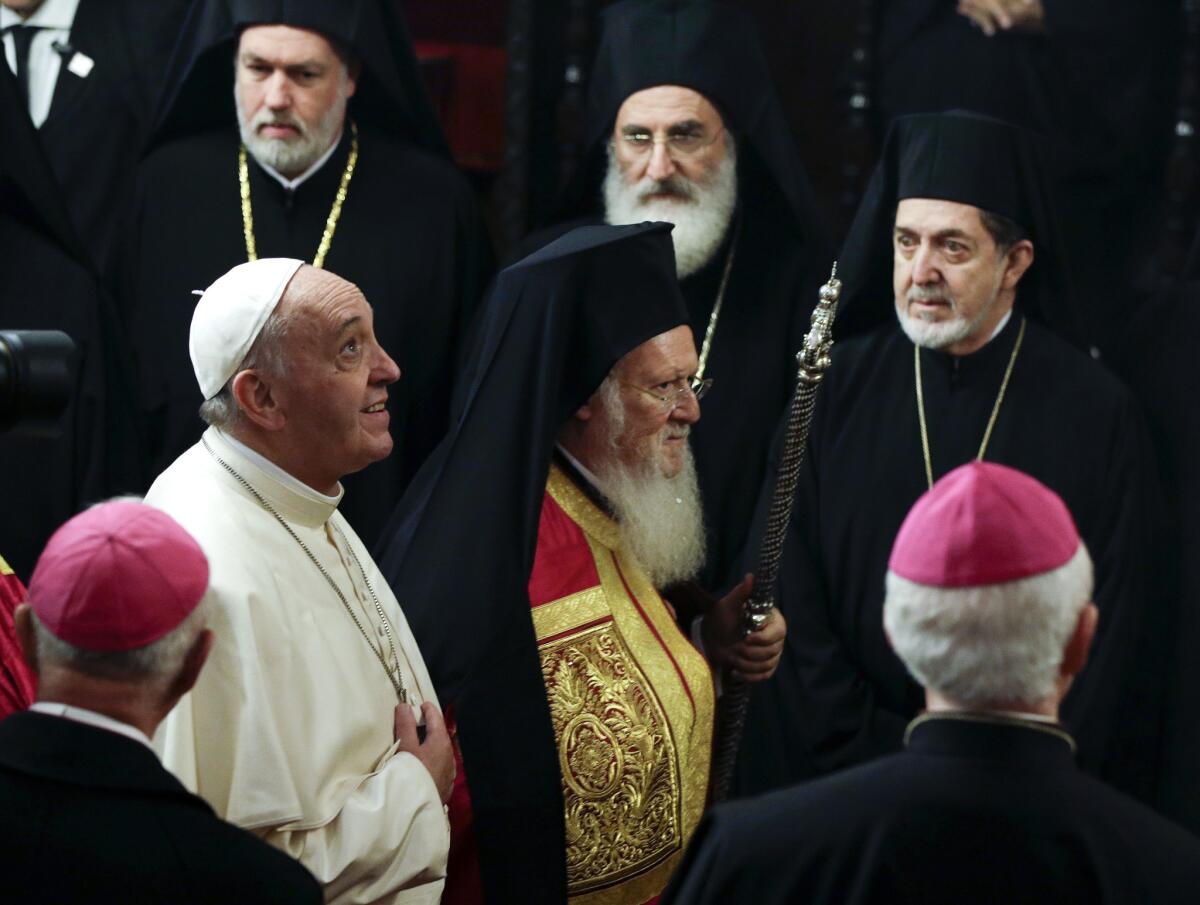
In 2014, Pope Francis, left, arrives with Ecumenical Patriarch Bartholomew I to attend an ecumenical prayer service in Istanbul, Turkey. On Saturday, both religious leaders will visit the Greek island of Lesbos to voice their solidarity with the refugees and migrants who have streamed into Europe fleeing war, poverty and persecution.
- Share via
Reporting from Athens — Pope Francis will visit the Greek island of Lesbos, the epicenter of Europe’s refugee crisis, to illustrate Christian unity and concern over the unending turmoil in the Middle East that has sparked the biggest exodus of refugees -- Christian and Muslim -- since World War II.
Francis will make a brief visit Saturday to the Aegean island that has received many of the million people fleeing war and poverty in the Middle East and Africa. He will be joined by Ecumenical Patriarch Bartholomew I, the head of the Orthodox Church based in Istanbul; Ieronymos, the archbishop of Athens and All Greece; and Greek Prime Minister Alexis Tsipras.
The visit is a rare show of accord between the Catholic and Orthodox churches, which have been divided since the Great Schism of 1054.
The visit is rich in symbolism.
Francis will set foot on an island that is not just a modern byword for the refugee crisis, but one that hosted Paul the Apostle on a visit in 58 A.D. and was overrun by desperate ethnic Greek refugees fleeing persecution in Turkey in 1922, the precursor to a formal population exchange that was one of the largest movements of people in history at the time.
Lesbos is also now the focal point of a controversial deal between the European Union and Turkey, criticized by human rights groups, designed to deter any more people from making the narrow crossing from the Turkish coast to the Greek islands, the porous frontier of the European Union.
Francis will visit the Moria refugee camp first, a registration center hurriedly converted into a detention center for about 2,500 refugees and migrants under a March 18 deal. Since midnight on March 20, any migrant or refugee arriving on Greek islands is detained and subject to a fast-track asylum evaluation process and returned to Turkey if not approved.
In visits to Lesbos and neighboring island Chios earlier this month, Human Rights Watch found that the camps housed women with young children, pregnant women, unaccompanied children, elderly men and women, and people with physical and psychosocial disabilities. None of the detainees had proper access to healthcare, sanitation facilities or legal aid, Human Rights Watch said.
The Moria facility on Lesbos is surrounded by a three-layer fence topped with barbed-wire. About 150 children kept at the center will be gathered at the barricades. The pontiff and the Orthodox leaders will individually greet about 250 asylum seekers at the camp before they speak and sign a joint declaration.
The three men will also hold a memorial and brief prayer at the port of Mytilene for those who have perished trying to make the crossing to Greece.
Francis’ first trip outside Rome on his accession to the papacy in 2013 was to the Italian island of Lampedusa to commemorate thousands of migrants dying in the crossing from North Africa. Last month on Holy Thursday, Francis washed the feet of migrants in a center for asylum seekers outside Rome, calling them “children of the same God.”
Since 2015, some 4,400 people have died in the Mediterranean, according to U.N. refugee agency figures. From last year to March 20, Greek authorities reported 580 people dead or missing on the route from Turkey to Greece. The United Nations said in September that an average of two children died a day attempting the crossing.
Three children will present the religious leaders with laurel wreaths that will be thrown into the sea as a memorial.
The refugee crisis and the persecution of Christian communities in the Middle East have helped spur closer ties between the two churches. Francis and Patriarch Kyrill II of Moscow, the head of the most populous Orthodox church, met in Cuba in February, the first such meeting in history.
Their joint statement began by saying their “gaze must firstly turn to those regions of the world where Christians are victims of persecution” -- the Middle East and North Africa. They called upon the international community to act urgently to prevent the further expulsion of Christians from the Middle East, seek an end to violence and terrorism and work toward a swift return to civil peace, enabling refugees “to return to their homes, wounds to be healed and the souls of the slain innocent to rest in peace.”
While not a formal visit, Francis’ visit to Lesbos is only the second time a pope has visited Greek territory since the Great Schism. Pope John Paul II visited Greece in 2001, the first time in 1,291 years, amid protests from the Orthodox faithful. Francis’ visit comes on the cusp of Orthodox Easter, the most important religious holiday in the Orthodox calendar.
The church split in 1054 into a Roman Catholic Church based in the Vatican and an Orthodox Church based in what was then called Constantinople, now modern-day Istanbul. Francis is the spiritual leader of a billion Catholics; Ecumenical Patriarch Bartholomew is spiritual leader of about 300 million Orthodox believers.
Bartholomew, an ethnic Greek with Turkish citizenship, was the first ecumenical patriarch to attend a papal inauguration since the schism and has greeted Francis, the son and grandson of Italian immigrants to Argentina, at the Patriarchate in Istanbul.
The religious leaders will be joined by a strictly secular leader -- Greek Prime Minister Alexis Tsipras, a self-described atheist who refused the traditional religious ceremony when he took his oath of office.
Despite the differences, all are focused on the refugee crisis and Europe’s reaction to dealing with it. Vatican spokesman Father Federico Lombardi said the visit will have a humanitarian and ecumenical perspective.
“It does not directly touch on political positions, or other such things, but their focus is fundamentally humanitarian, experienced in an ecumenical key,” he said.
For the Greeks, the visit is an opportunity to highlight to the world that more than 50,000 refugees are still stranded in the country, which is still struggling with financial problems that have entailed three rescues in six years. The migrants and refugees, who are expected to be relocated in the thousands to other countries, are still gripped by hopes that borders in the north of the country will reopen to allow them to move to wealthier countries such as Germany and Sweden.
In Idomeni, the Greek border town with Macedonia where 10,000 people are camped out waiting for the border to reopen, clashes between migrants and Macedonian police were reported just days before Francis’ visit, the second time in a week after Macedonian police used tear gas to disperse a group trying to break down a fence, prompting official Greek complaints.
In Piraeus, the country’s main port, authorities have struggled to persuade migrants and refugees camped on piers that they should move to alternative accommodations. As of Friday morning, there were still 3,770 people living in tents in Piraeus, according to Greek government figures.
“Our country is in a very difficult situation,” Ieronymos, the Athens archbishop, said Tuesday. “We are raising fences and preventing refugees from going to those countries which, indeed, are responsible for this situation.”
Petrakis is a special correspondent.
More to Read
Sign up for Essential California
The most important California stories and recommendations in your inbox every morning.
You may occasionally receive promotional content from the Los Angeles Times.
